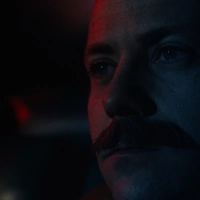Interview: Alexandre Desplat – The Ides of March
Last week I had the opportunity to interview composer Alexandre Desplat who recently scored the very good political-thriller The Ides of March. The interview focuses mainly on that film, although a few questions near the end touch on his work on The Tree of Life and the final Harry Potter installment.
Enjoy!
_______________________________________________
When did you find out you were going to be doing the score for The Ides of March? I found out sometime before the director, George [Clooney], started shooting. We had this kind of working relationship before – I had scored Syriana for him and Mr. Fox both of which he was in, so we had met here and there in a few moments and he showed me this script and as soon as it was ready, he showed me the director’s cut of the film.
How was it to work on this project? George is a great person to work with. He’s not only very professional, but he’s been around music and knows how each piece of music works with a film – he has a great love of music. His aunt was a famous singer/actress – Rosemary Clooney – and you can feel the music is of great importance for him. He doesn’t interfere with my work, but in his decisions he had ideas for instrumentation, and the placements for the dramatic arcs that the music should follow. He is very sought after to work with – very kind.
In creating the sound for the film, what did you try to focus on? Several things. This idea that what the campaign seems to be, it’s not. The origins of the title refer to the month of March, which is the month of the god of war – Mars. So war is really the subtext – war and betrayal. These two elements. Therefore, we use a lot of drums to bring this kind of warlike feel to it. There’s also the element of doubt, which is a sort of strong element in the film. The doubt that allows someone to betray his friends and allies, the doubt that he’s on the right side. The instrumentation had to capture the fragility of this. What also comes from this story plays on the doubt of the individual. On the surface, the governor is the perfect married man. But later, the integrity of the man that was all these things is gone, and you try to create suspense and a lot of it is with the timpani and drums, a rhythm motive that always comes back in the film.
What was your favourite part of the film to score? There are two. First off, the opening. I always like working on bringing the audience into the story, so with the opening I’m always polishing these pieces to get them right. And I also like the moment at the end – just before the end of the film – where I played with the same motive from the beginning, extremely slowed down, this time played by the strings. It is when we are following Steven [Ryan Gosling] who is now the head of the campaign, and his rise to power is now achieved. But because of how he achieved his rise to power, by betraying everyone, it plays as almost an adagio – almost like a death march. When he’s at the top of his game, the music contradicts that.
The Ides of March has had a fairly good critical response both out of the film festivals and now that it is in its theatrical run – do you think it has any awards potential? Many. I think the director, screenplay, and I think the whole cast, from the supporting cast, to the big stars, George Clooney, Ryan Gosling – who all gave great performances. The photography was also splendid, and George captured something that comes from the movies we remember from the ’70’s, these political movies.
Now if you don’t mind, I’d like to briefly ask you about a couple of your other films this year – The Tree of Life, and Harry Potter and The Deathly Hallows: Part II. What was it like working on these films? Harry Potter was a huge project. It was the second movie in the same year – the second of the two last Harry Potter films, so I was immersed for almost a year in the Harry Potter world. It was an amazing thing to be invited to participate in something so big. Every single village in the world – and when I say village I mean from village to city – everyone knows and sees Harry Potter. I think it is the third best grossing film ever, and it gives you an idea of the pressure that is there. The first composer for the first film was John Williams, who’s the master composer of American cinema, and yet you have to prove that you can challenge yourself and the audience to be moved, excited, thrilled, scared… It’s a huge, huge project, and we had it recorded with a huge orchestra and choir, which is always great.
…and The Tree of Life? Just the opposite. It was Terry [Malick] locked in his editing rooms with me coming to visit and playing pieces for him on the piano in the editing rooms, or exchanging information over the internet or over the phone, speaking for hours about the film. Then it was going to London to record without the director, going to see Terry again, almost for years. Talking to him is like being with a scientist of the middle ages or an alchemist, he knew about French history, German history, Mozart, Beethoven, and being with someone who seems to know everything, I learned a tremendous amount of things being able to exchange all of these subjects with Terrance. It was a long process, but his film… I’ve never seen a movie before where every shot is pure beauty and perfection.
Is there anything else you’d like to add before we wrap up? I can say it’s been an incredible year for me, both with the bigger films and the smaller french ones. There was La Fille du Puisatier (or The Well Digger’s Daughter), which had a fantastic director and actors – I am lucky to always be asked to do different projects, to be able to take risks. There is nothing more different from the small films to Harry Potter to The Tree of Life to The Ides of March. Being able to work on them, it’s like traveling to other worlds – other planets – and sometimes I feel like I’m an astronaut going from one to the other in a very fast vessel.
That’s about all the time we have, so thank you very much for taking the time to speak with me today. Thank you.












He’s a genius. Desplat had a wonderful year, and he truly deserves to be awarded.
LikeLike